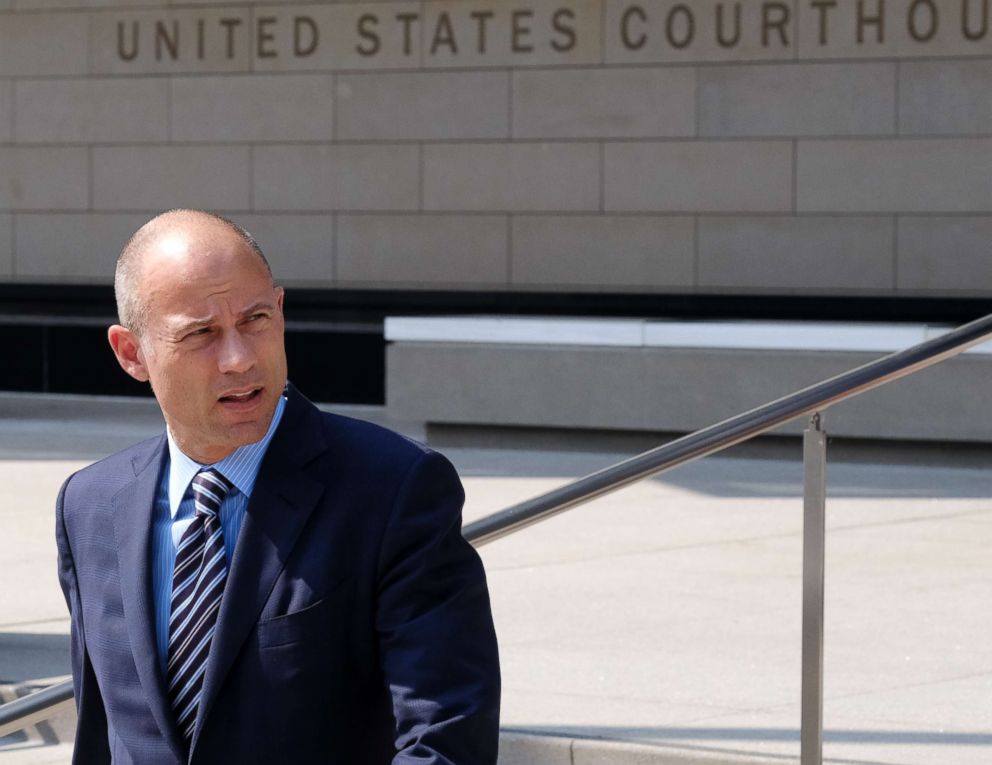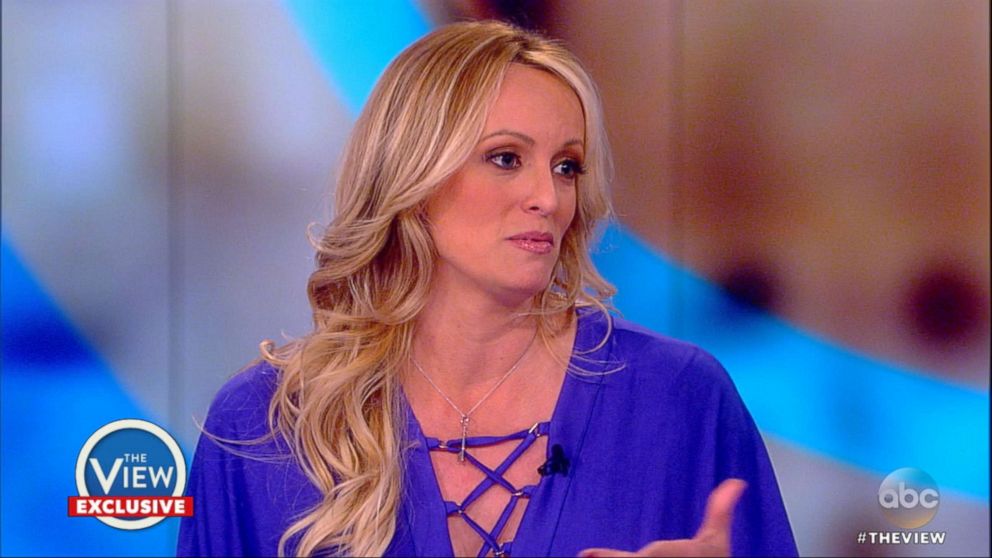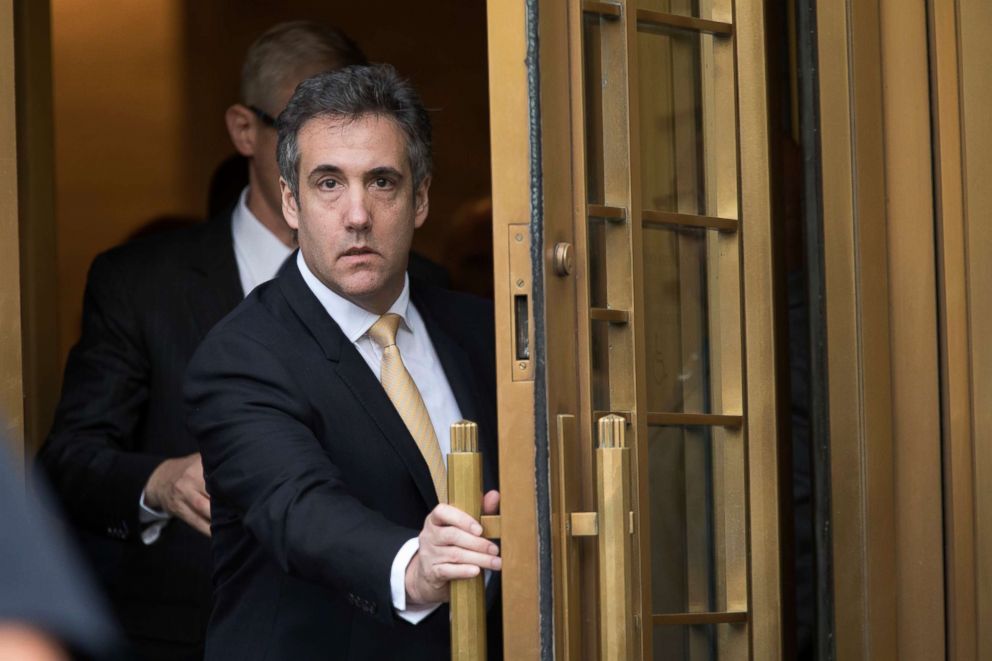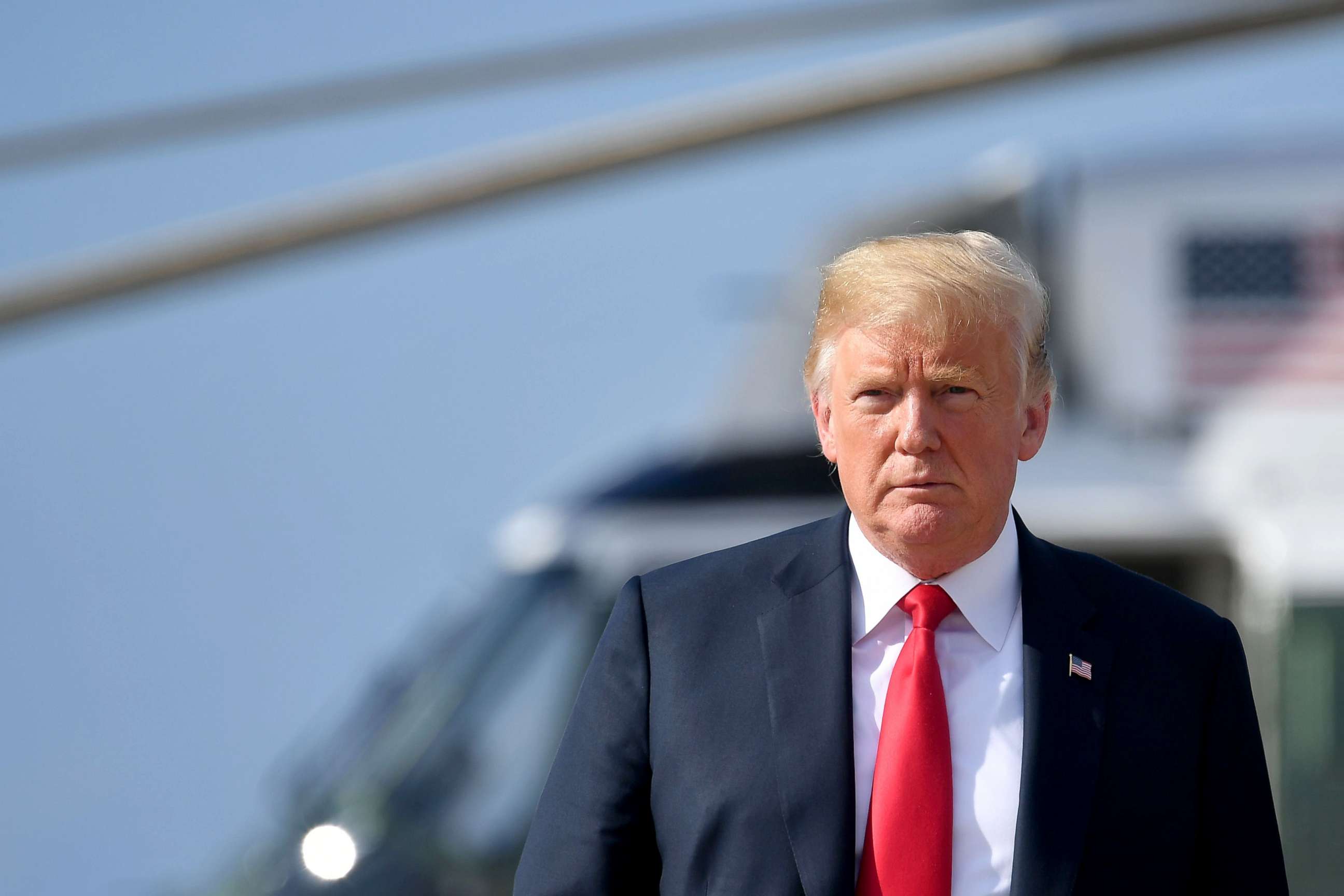Stormy Daniels fighting to keep Trump, Cohen mired in 'hush money' lawsuit
She sued over a $130,000 settlement agreement reached before the 2016 election.
The attorney for adult-film star Stormy Daniels is vowing to "vigorously oppose" efforts by President Donald Trump and his former personal attorney Michael Cohen to walk away from her lawsuit over a $130,000 settlement agreement reached in the closing days of the 2016 presidential election.
Over the weekend, Trump and Cohen each filed notices with the court indicating they would no longer contest Daniels’ claims that the deal was invalid, nor would they seek to enforce the deal. They also promised not to sue Daniels, whose legal name is Stephanie Clifford, over any alleged breaches of the non-disclosure agreement.
Trump and Cohen contend that should be the end of it. Clifford and her attorney Michael Avenatti, however, say otherwise.
“The Court cannot simply allow [Trump and Cohen] to exit the case without facing any true consequences or a meaningful inquiry into the truth,” Avenatti wrote in a court filing Monday. “Terminating the case now after all of the lies, deceit, and chicanery…would be premature and would erode public confidence in the courts.”

Trump and Cohen have asked U.S. District Court Judge S. James Otero to declare the dispute over the settlement agreement moot. In a letter filed as an exhibit to Trump’s court filing on Saturday, the president’s attorney, Charles Harder, told Avenatti that Clifford “should immediately dismiss Mr. Trump from this lawsuit.”
Avenatti characterized the latest legal maneuverings in the case as a “stunt” designed to thwart his efforts to depose the president and learn the facts that led to the agreement.
“It would certainly appear to be a gambit to remove Trump entirely from the lawsuit,” said Naomi Mezey, a professor of law at Georgetown University, who noted that the defense filings come just as Avenatti is petitioning the court for permission to question the president under oath.
“They're trying to say, ’it's over’ with respect to Trump because he is now conceding the facts that Clifford was trying to have [the court] declare to be true,” Mezey said.

Clifford filed her lawsuit in March, arguing that the $130,000 hush money pact reached just prior to the 2016 presidential election is invalid. She claimed in court filings that the agreement violated federal election laws and was never legally formed because it lacked a signature from Trump.
Clifford alleges that she had a sexual encounter with Trump at a Lake Tahoe celebrity golf tournament in 2006. Trump has denied the allegation and maintained that he did not know about the settlement agreement until after it was signed. He has recently acknowledged reimbursing Cohen for the costs of the deal.
In his court filing Monday. Avenatti accused Trump, Cohen and their surrogates of waging a six-month intimidation campaign against his client “accompanied by serial misrepresentations to the press and the public,” according to court documents.
“These threats were all premised on a giant lie,” Avenatti wrote.

Clifford’s lawsuit has been on hold for several months after Cohen – whose homes and office were raided by federal agents in April – informed the court he intended to invoke his constitutional rights against self-incrimination if he were to be questioned over the settlement agreement.
Last month, Cohen pleaded guilty to eight felonies in federal court in New York, including a campaign finance violation in connection with the October 2016 deal with Clifford. At his plea hearing, Cohen told the court that he had facilitated the agreement “in coordination with, and at the direction” of Trump “for the principal purpose of influencing the election.
Avenatti now contends in a court filing that Cohen and Trump used the criminal investigation into Cohen as a ruse to delay the civil litigation.
“It is now clear that the request for a stay never had anything to do with any Fifth Amendment rights,” Avenatti wrote. “Instead, the stay was pursued for the ulterior and improper purpose of evading depositions of Mr. Cohen and Mr. Trump.”

Avenatti is asking the court to reject the efforts to dismiss the case, move forward with document discovery and a deposition of President Trump, and proceed with a planned hearing on September 24. Trump and Cohen have argued that the case, if not dismissed, should remain on hold until after Cohen is sentenced in December.
Judge Otero has yet to weigh in on the competing motions, but according to Mezey, even if he were to dismiss Clifford’s claim over the settlement agreement, the judge may still seek an explanation for the sudden about-face in Cohen and Trump’s posture in the litigation.
“This is not just your normal abandonment of a particular claim. It's very public protestation of the basic facts of the lawsuit for six or seven months and then a capitulation when it looked like they were suddenly going to have to face a deposition,” Mezey said. “The court may feel that it has a right to an explanation for why this lawsuit has been going on as long as it has if there is no case or controversy here, and in light of repeated claims to the contrary by the defendants.”




